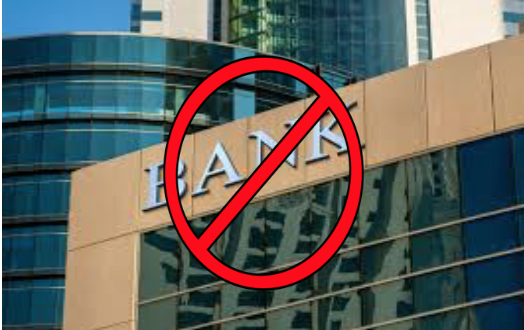CommentsLA WATCHDOG--Charter Amendment B: Shall the City Charter be amended to allow the City to establish a municipal financial institution or bank?
Angelenos and the City of Los Angeles dodged a potentially fatal bullet on Tuesday, November 6, when 58% of the City’s voters said NO to Charter Amendment B, which, according a Los Angeles Times editorial, was “one of the most ill-conceived, half-baked measures to come out of City Hall in years, and that’s saying something.”
This overwhelming NO vote was despite endorsements from 170 organizations, citizens, and many elected officials, including Mayor Eric Garcetti, City Council President Herb Wesson, and eleven other members of the City Council (Cedillo, Blumenfield, Ryu, Koretz, Martinez, Rodriquez, Price, Bonin, Englander, O’Farrell, and Buscaino).
Hopefully, this will be the last we hear about the City being a lab rat for public banking.
Now the Mayor and the City should follow up on the February 2018 recommendation of the City Legislative Analyst (“CLA”) that “existing housing, economic development, and infrastructure programs be further evaluated to determine how the City can improve its delivery of these programs, as well as improve social, ethical, and environmental standards for the implementation of these programs.”
The CLA has identified 39 affordable housing and quasi-banking and economic development programs that are currently operated by the City.
The City should also renew its efforts to establish Banking Development Districts which would serve “banking deserts” and the many underbanked and unbanked residents of our City. Under this program, participating banks (which have management and systems) would establish branches in areas with a demonstrated need for banking services. In turn, the City would deposit a portion of its funds in participating banks, grant property tax breaks for branch locations, fast track land use approvals, and offer additional incentives to participating banks that are interested in additional City business.
[As an aside, this is an excellent opportunity for the now blackballed Wells Fargo to get back in the City’s good books.]
Fortunately, Banking Development Districts are not a new concept. Rather, the City could follow the successful example of the State of New York which established the program in 1999 and now has 45 Banking Development Districts throughout the state.
The proponents of public banking will continue their efforts to have a government owned bank. Hopefully, any such governmental entity will have well thought out strategic, operating, and technology plans and will have identified the sources of funds to capitalize the bank, to establish the necessary reserves, and to cover the initial losses and significant start-up expenses.
Most importantly, any government owned bank must have an experienced management team that will make credit worthy loans, will analyze and control the many risks associated with the banking business, and will say NO to political cronies.
There also must be truly independent oversight to prevent any meddling by politicians and their cronies. Otherwise, the government’s legally designated funds will be deposited in a blind pool (the bank) that will then be used to fund pet projects and to grant loans to politically wired borrowers who do not have the capacity (or the inclination) to repay their loans.
We have dodged a bullet despite the advice of Garcetti, Wesson, and the eleven other lemmings on the City Council. Now it is time for Garcetti and Wesson to implement some practical solutions for the City’s banking deserts.
(Jack Humphreville writes LA Watchdog for CityWatch. He is the President of the DWP Advocacy Committee and is the Budget and DWP representative for the Greater Wilshire Neighborhood Council. He is a Neighborhood Council Budget Advocate. He can be reached at: [email protected].)
-cw















